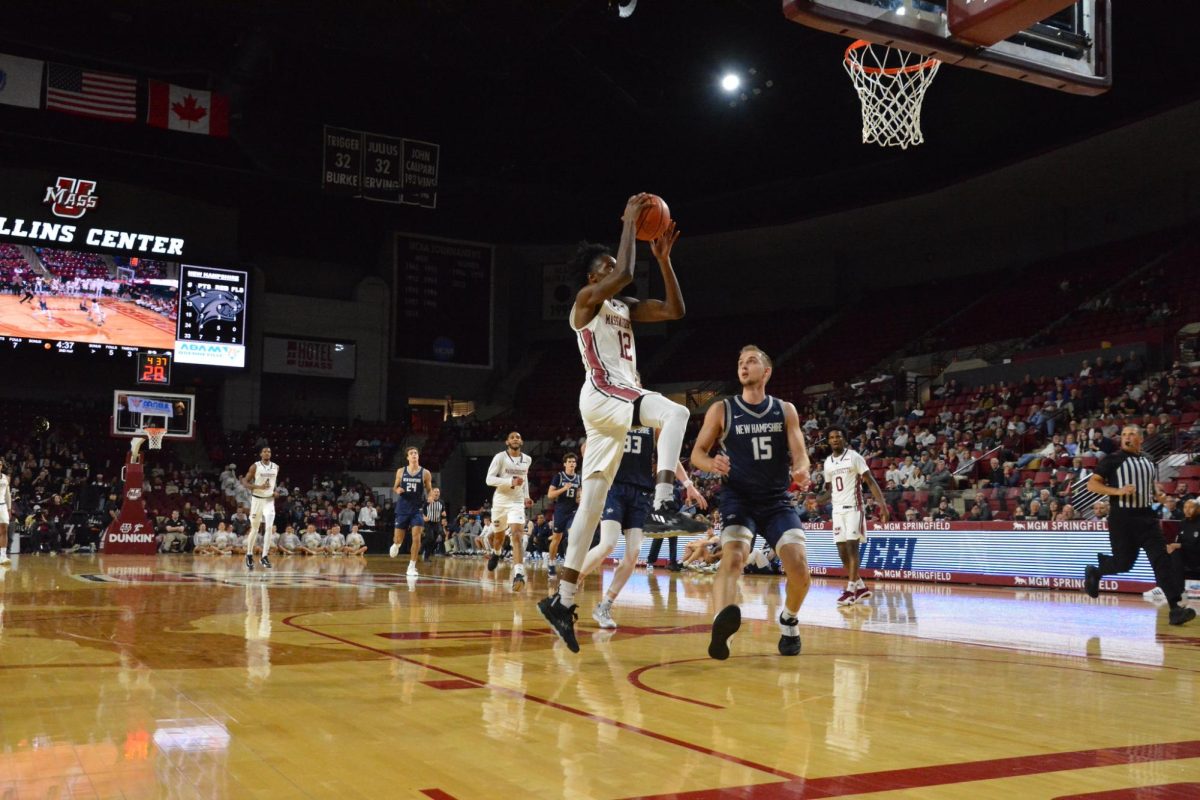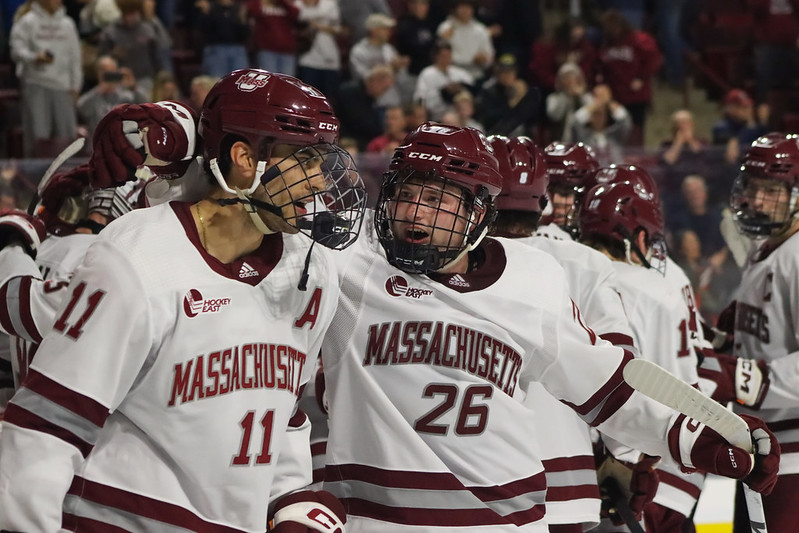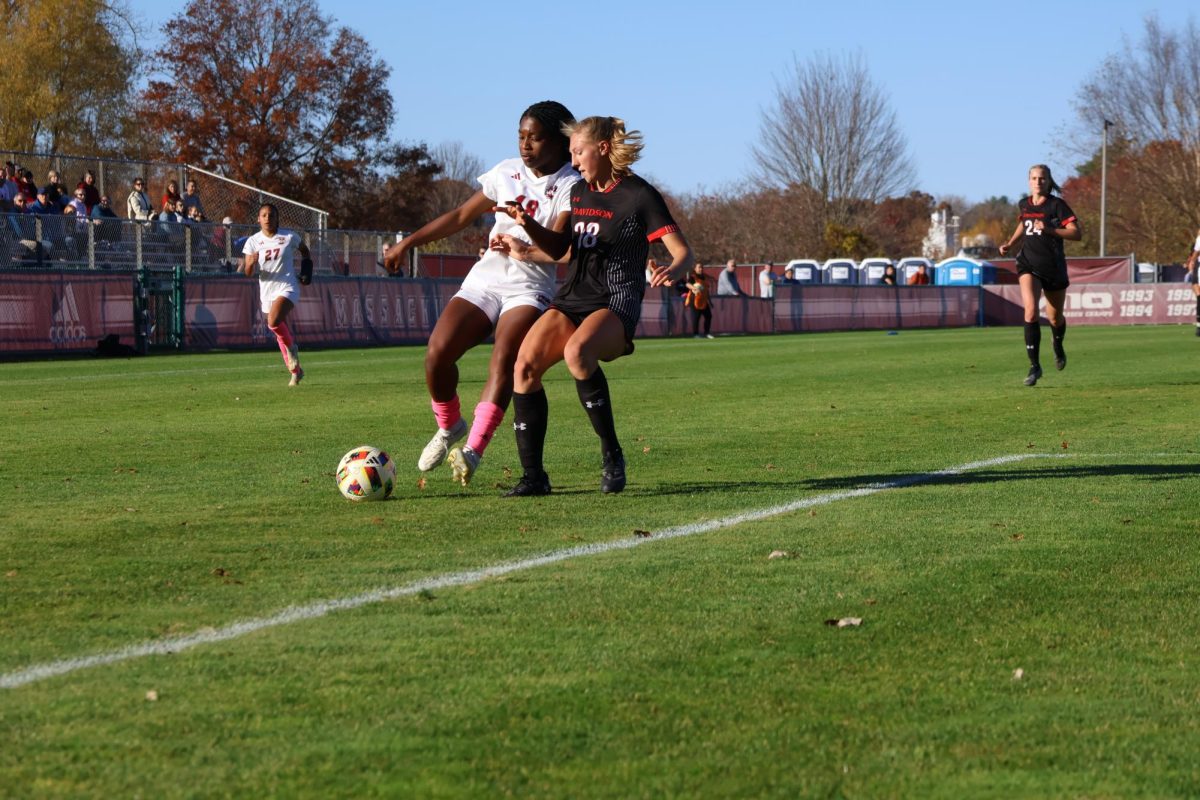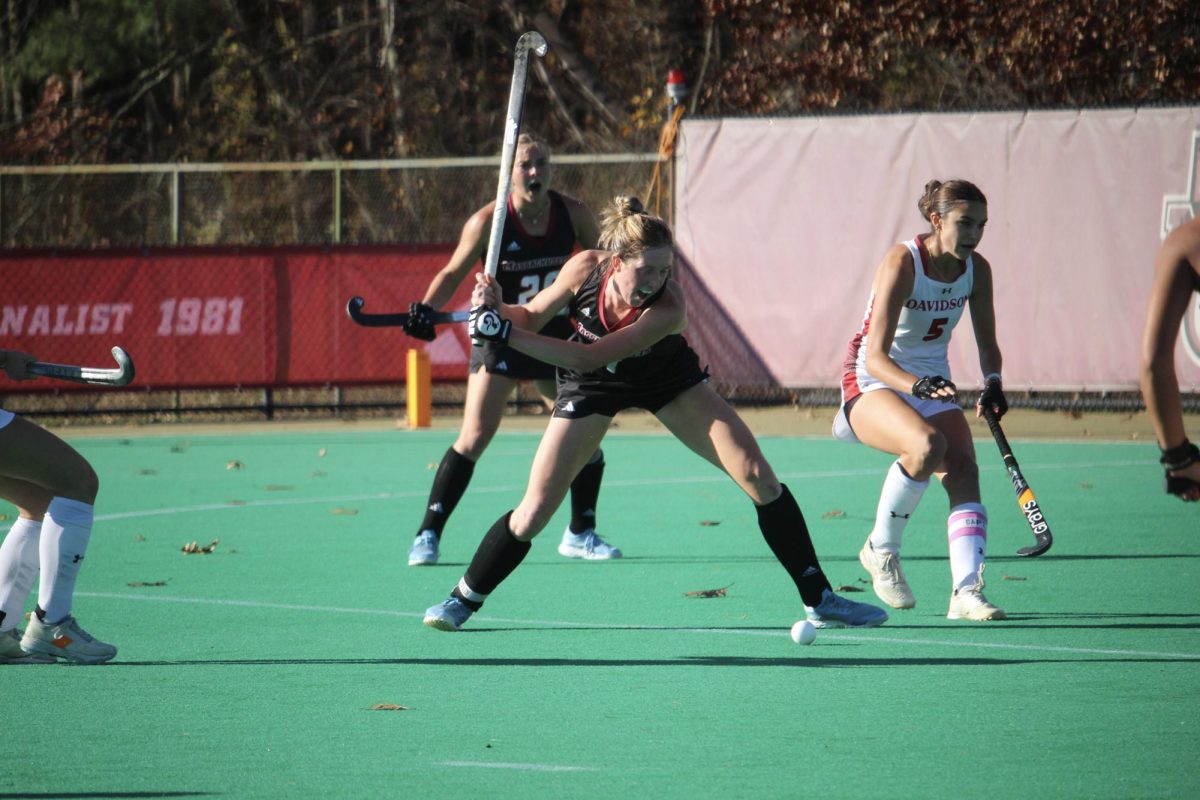Across the nation, efforts to aid the victims of the terrorist attacks of one week ago continue full-strength. Blood drives continue locally, while emergency personnel are being asked not to flock to New York City uninvited.
The American Red Cross held a blood drive at the University of Massachusetts at Amherst yesterday. The drive, held in the Campus Center Auditorium, drew nearly a hundred people as of 12:30 p.m.
The response by the campus community following this tragedy has been “overwhelming,” according to Registered Nurse and Team Supervisor Margaret McMahon.
“Its been unbelievable, right from the beginning,” McMahon said. “This drive was scheduled prior to the attacks, and we were hoping for 75 units.”
Although the drive had only collected 30 units of blood as of early afternoon, that number was not reflective of the drive.
“We only have nine beds,” McMahon explained. “There’s a lot of people waiting a long time to donate. People only bleed so fast.”
The blood collected yesterday will go first to Springfield, packed in ice, and then sent on to Dedham, where the blood will be tested.
“Blood has a shelf life of 42 days,” McMahon said. “They’re going to start freezing it and it lasts longer that way.”
Students, faculty, staff and other members of the Amherst community turned out to donate. Donors waited anywhere from two to three hours for their turn on the tables.
UMass football offensive lineman Chris Harris was facing the needle for the first time yesterday.
“I want to do anything I can to help the situation,” Harris, an undeclared sophomore said. “I’m from New York, and I know people that were in that building. A pint of blood is nothing, but I’ll do anything I can do.”
Kristen George, a sophomore Pre-Nursing major sat next to Harris, waiting her turn to be screened by the nurses prior to donating.
“Anything people can do can help,” George said. “There’s a shortage of blood.”
Harris and George waited over an hour to get this far, and still faced a wait to get onto the tables.
Danielle Smith, a Natural Resources senior, donated blood for the first time yesterday. She sat at a snack table set up for donors by Red Cross volunteers. Cookies and other snacks, as well as juices were set out to help avoid complications resulting from low blood sugar.
“I came out today because of the attacks, and the need for blood,” Smith said. “Any support we can give, anything I can do, I’m going to do, and this was my first option.”
Smith arrived at the Campus Center Auditorium at 10:15 a.m. Red Cross volunteers, who kept a close on donors in case they felt ill after donating, told her she could leave at 12:45 p.m. Smith had just come off the table at 12:30 p.m.
Maggie Cassel, a senior Psychology student, gives blood every year on her birthday. Yesterday, her twenty first, marked the last time she donates blood, due to restrictions placed on donors who have spent time in the United Kingdom.
“I got here about ten, and there were people lining up,” Cassel said. “I filled out my paperwork as people were setting up.”
Another drive has been scheduled for Wednesday, Sept. 26. Time and place are to be announced.
The state of New York has asked towns and cities in Massachusetts and other states to refrain from sending emergency response and medical personnel unless requested.
The Massachusetts Emergency Management Agency (MEMA) notified towns and cities last week that if needed, they would “be contacted by MEMA as the formal requests for assistance flow through the proper channels” from New York.
“The fear is that many cities and towns are beginning to spontaneously send medical and emergency response personnel and equipment to the site,” MEMA said in a relapsed statement. “New York officials are concerned that they will be overwhelmed by this unsolicited assistance, which could become more of a hindrance than a help as they attempt to organize their assists at the scene.”
MEMA is the state agency responsible for coordinating federal, state, and local resources to protect the public during disasters and emergencies.
The Massachusetts Department of Health had issued a call for support the day after the attacks, but soon stopped soliciting aid.
“We’ve had literally hundreds of phone calls by concerned doctors and nurses ever since the word went out this afternoon that we were looking for volunteers,” Deputy Commissioner of Public Health Paul Jacobsen said in a released statement. “Our phone has been ringing off the hook.”
In addition, MEMA has set guidelines for donations of money and materials. The Executive Secretary of the Massachusetts Voluntary Organizations Active in Disaster (MVOAD) Nancy Murphydoyle, in a released statement, described the outpouring of aid “overwhelming.”
“People in al walks of life are calling to pitch in and help any way they can,” Murphydoyle said. “Make sure you know what is needed before you make a donation or launch an appeal for donations.”
Material goods are not needed at this time, Murphydoyle explained.
“New York’s immediate material needs are being met through existing compacts and through the Federal Response Plan.”
Cash donations should not be sent, although checks should be made out to established disaster relief organizations. A list of such organizations are available on MVOAD’s website, http://www.disaster-relief.net/mavoad/.
Blood donations are encouraged.
“As we all know, there is and will continue to be an ongoing need for blood. Please be patient. We know you want to help now and are heartened by your response,” Murphydoyle said. “Help us in a way that truly helps us help the victims. Make an appointment with the Red Cross for the days and weeks ahead when the need for blood is going to be greater.
“First and foremost the victims and their families, the responders, and the country is in need of your prayers,” Murphydoyle continued. “The need for spiritual reflection cannot be overstated.”
All inquiries regarding financial donations and volunteerism should be directed to the Donations Coordination Team Hotline at 1-800-293-4301.






